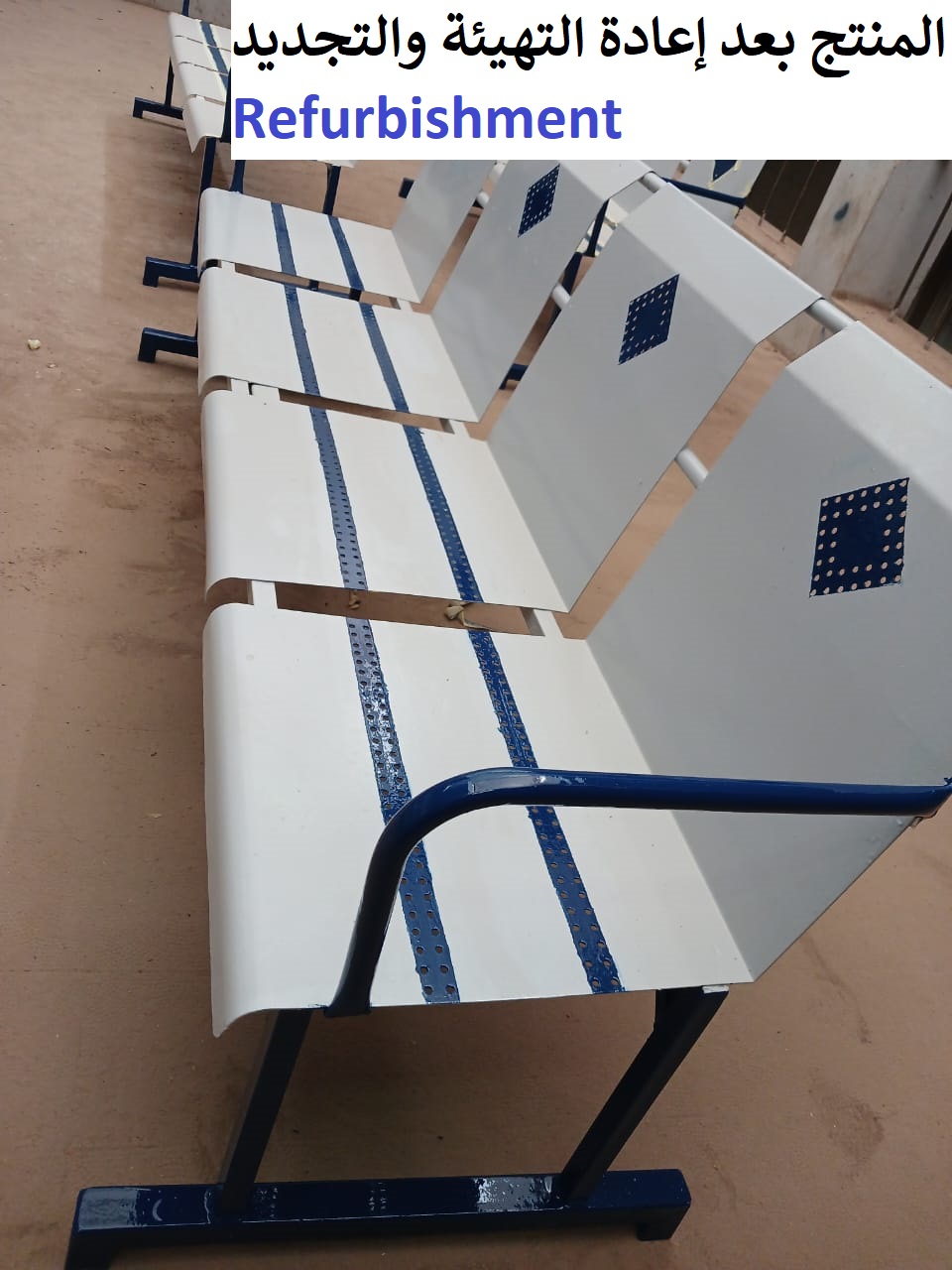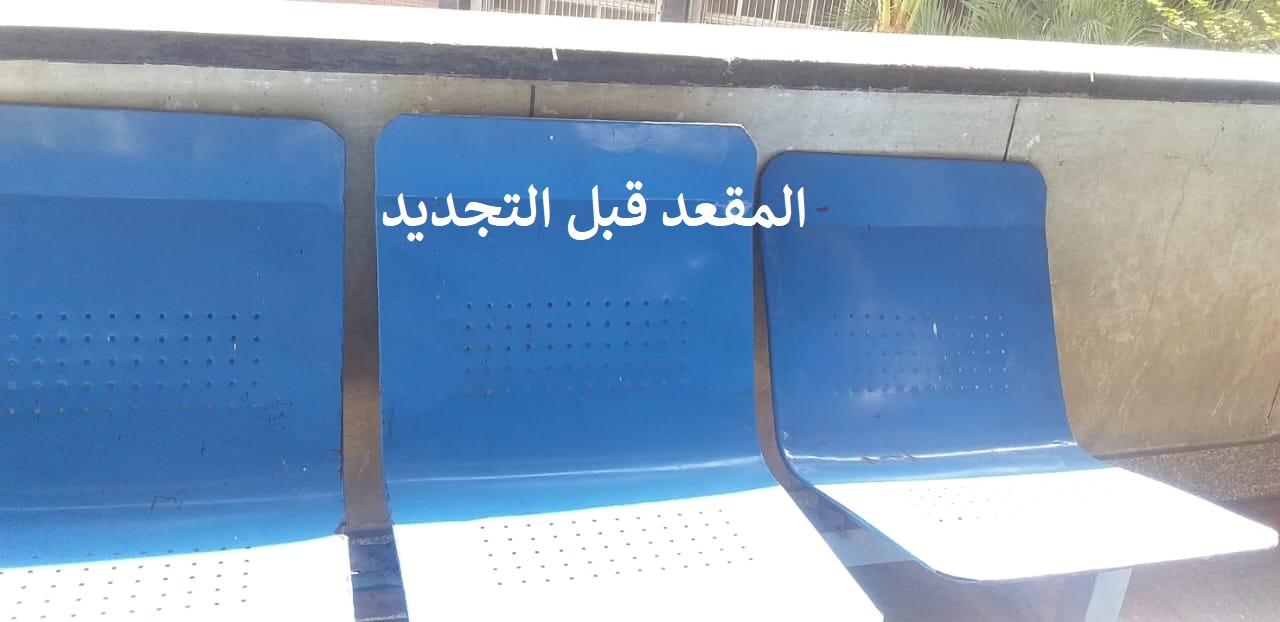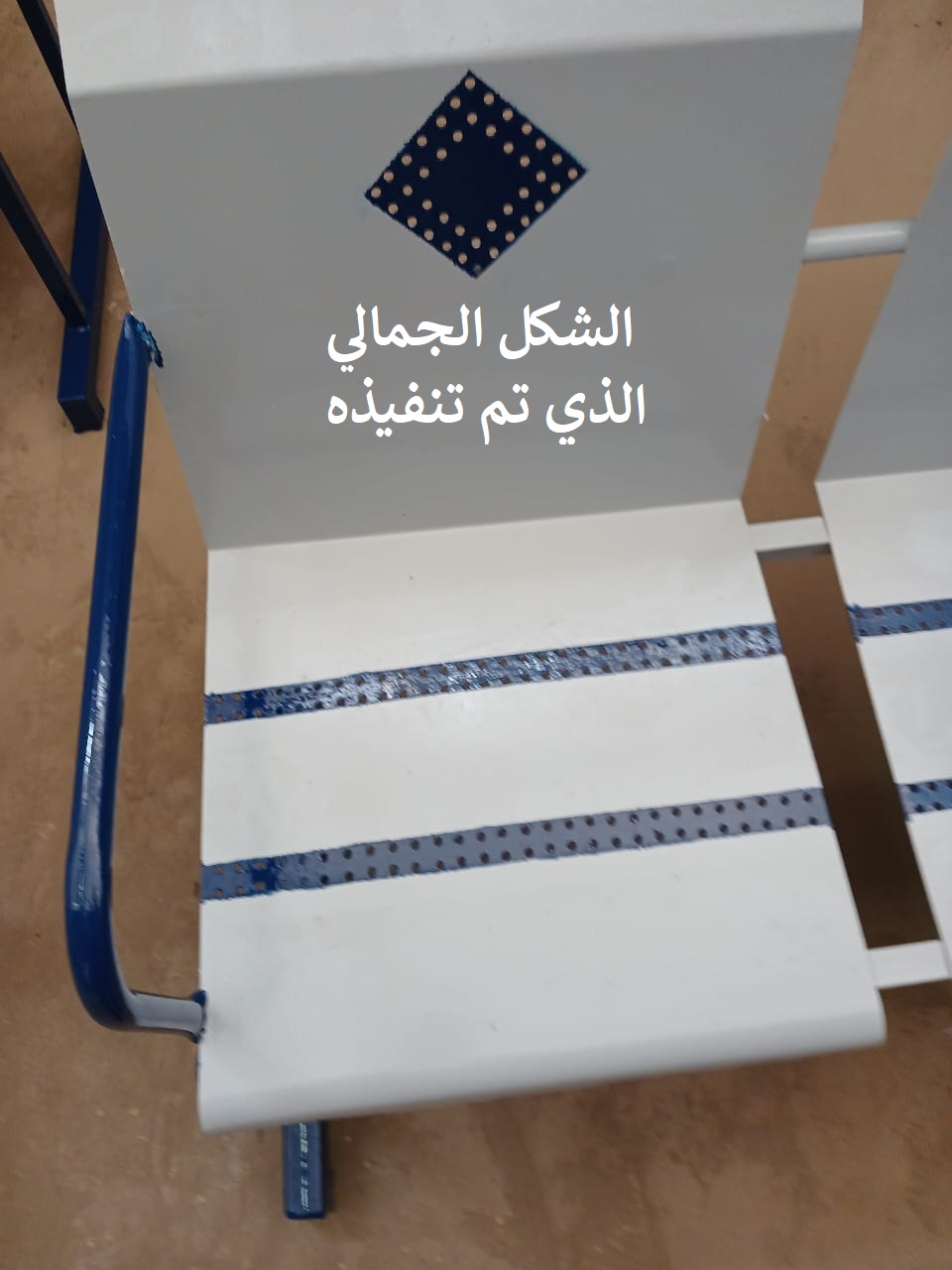ت
The Faculty of Engineering workshops at Assiut University represent a promising model for the circular economy and achieving sustainable development goals. They represent the first center of expertise in applying circular economy principles within the university. Their activities are not limited to manufacturing, education, training, and providing technical consulting, but also extend to the maintenance and renewal of products (such as furniture and research equipment) through refurbishment and refurbishment processes.
This extends the useful life of consumables, preventing depreciation (depreciation of assets) and reducing waste.
Practical Example: Refurbishing Dilapidated Seats:
As shown in the images, a set of seats that were on the verge of depreciation in one of the university's faculties was revived through:
1. Repairing the structure (in the metalworking and bodywork workshops).
2. Adding aesthetic touches (in the metalworking and painting workshops).
3. Returning them to service more efficiently and at a lower cost compared to purchasing new seats.
This model achieves Goal 12 of the Sustainable Development Goals (SDGs):
"Ensure sustainable consumption and production patterns"
- by reducing waste (Target 12.5).
- Promoting reuse (Target 12.6).
Tangible benefits:
- Cost reduction: Reducing the university's annual purchasing bill.
- Environmental protection: Reducing the carbon footprint resulting from the manufacture of new products.
- Empowering students and researchers: Practical application of sustainability and circular economy concepts in engineering education.
Finally, the Faculty of Engineering workshops at Assiut University are not merely manufacturing units; they are incubators for sustainable innovation, translating the principles of the circular economy into action and providing a model for integrating academic, environmental, and economic goals into a single framework.
. ![]()








